Hairy bittercress
August 7, 2015
Cardamine hirsuta L.
Life cycle
Rapidly growing winter or summer annual.
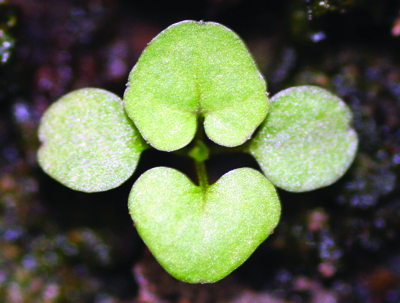
Hairy bittercress seedling.
Leaves
Round cotyledons on long petioles are followed by heart- to kidney-shaped first two true leaves. Subsequent leaves are compound with two to eight alternately arranged leaflets and larger terminal leaflet. Leaflet margins are shallowly toothed to lobed. Mostly hairy leaves initially develop from a basal rosette, followed by a few smaller, narrow stem leaves. Basal leaves are persistent through maturity.
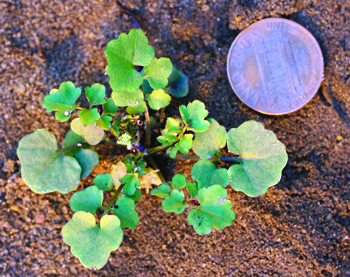
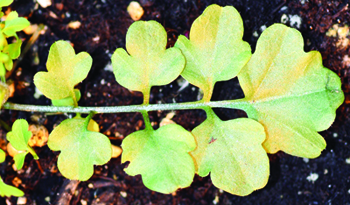
Hairy bittercress rosette (left) and leaf (right).
Stems
Mostly erect, smooth, angled stems branch mainly at the base. Stems are less than 12 inches tall.
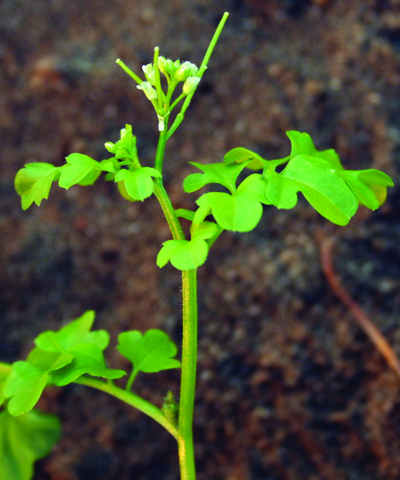
Hairy bittercress flowering stem.
Flowers and fruit
Very small, white flowers with four petals are arranged in terminal clusters. Fruit are very narrow, about 1-inch-long, flattened, upward-pointing capsules that explosively eject numerous small seeds.
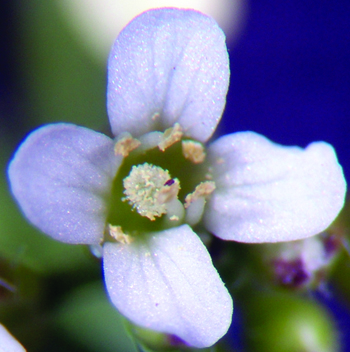
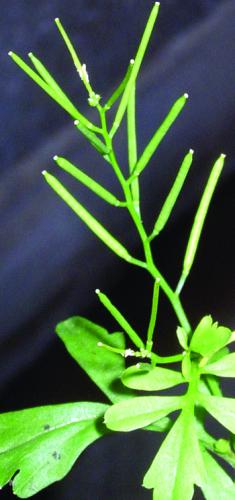
Hairy bittercress flower (left), and fruit (right).
Reproduction
Seeds. Multiple generations may be produced in a single year.
Similar weeds
Smallflowered bittercress (Cardamine parviflora L.) Differs by having up to six leaflet pairs and basal leaves that are not present at maturity.
Print a PDF of this page: Hairy bittercress



 Print
Print Email
Email

